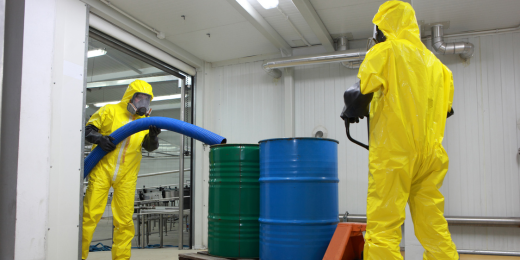Reclaim Waste - Questions
Reclaim Waste - Questions
Blog Article
The Facts About Reclaim Waste Uncovered
Table of ContentsHow Reclaim Waste can Save You Time, Stress, and Money.More About Reclaim WasteAbout Reclaim WasteSome Known Details About Reclaim Waste Reclaim Waste Things To Know Before You Get This
Explore the kinds, events, and types of liquid waste. Domestic sewage waste describes the waste and products from a residential sewage-disposal tank. This type of waste is created by human beings in residences, institutions, and other structures. This only consists of sewage-disposal tanks that have a drainpipe area. The appropriate administration and disposal of domestic sewer waste call for fluid waste to be transferred to a sewer therapy plant where the correct methods and equipment are applied to cleanse and dispose of waste.
Commercial waste usually consists of prospective threats, such as flammable materials or a mixture of liquid and strong waste products, and calls for an advanced and in-depth disposal process. The disposal of industrial waste usually involves the purification of waste before transport to make certain secure and correct disposal. Hazardous waste is produced from results and runoff of commercial procedures and manufacturing.
This type of waste can not utilize the very same sewage monitoring transportation or procedures as septic or industrial fluids. The industrial waste management process requires the examination and screening of liquid waste before it undertakes the disposal procedure (liquid waste disposal melbourne). Drainage waste is the liquid waste that originates from drainage and excess stormwater in extremely booming locations or cities
Overflow waste can trigger contamination and flooding if not managed effectively. Find out more regarding sewage system cleaning and waste administration. Making sure appropriate waste administration can stop disasters and minimize environmental damage. Both individuals in domestic settings and professionals in commercial or production sectors can gain from understanding the procedures and regulations of liquid waste management.
Reclaim Waste - An Overview
Get in touch with PROS Solutions today to learn about our waste monitoring and disposal solutions and the proper ways to care for the fluid waste you create.
(https://www.goodreads.com/user/show/183557660-leon-aube)Do you know what occurs to your water when you end, purge the toilet or drain pipes the cleaning maker? No? Well, it deserves understanding. This so-called 'wastewater' is not just an important resource but, after therapy, will certainly be launched to our land, rivers or the ocean. Utilized water from commodes, showers, bathrooms, cooking area sinks, washings and industrial procedures is referred to as wastewater.

water made use of to cool down equipment or clean plant and devices). Stormwater, a form of wastewater, is overflow that streams from farming and city locations such as roof coverings, parks, gardens, roadways, paths and gutters into stormwater drains, after rain. Stormwater flows untreated straight to neighborhood creeks or rivers, eventually reaching the sea.
The Best Guide To Reclaim Waste
In Queensland, the majority of wastewater is dealt with at sewage therapy plants. Wastewater is carried from domestic or commercial sites with a system of sewage systems and pump terminals, known as sewage reticulation, to a sewer treatment plant. City governments build, keep and operate most sewage treatment plants. Operators are licensed under the Environmental Protection Act 1994 to discharge treated wastewater at an appropriate ecological requirement right into waterways.
The Division of Natural Resources suggests city governments about handling, operating and keeping sewage systems and therapy plants. In unsewered areas, neighborhood governments might require owners to install private or household sewer therapy systems to deal with residential wastewater from toilets, kitchens, restrooms and washings. The Department of Natural Resources authorizes making use of household systems when they are proven to be reliable.
Most stormwater obtains no therapy. In some new communities, therapy of some stormwater to remove litter, sand and gravel has actually begun utilizing gross toxin catches. Wastewater treatment occurs in four stages: Gets rid of strong matter. Bigger solids, such as plastics and other objects wrongly released to sewage systems, are eliminated when wastewater is passed with displays.
Wastewater then moves into large tanks where solids clear up and are removed as sludge. Oil and scum are skimmed from the surface area. Utilizes tiny living organisms referred to as micro-organisms to break down and remove continuing to be liquified wastes and great bits. Micro-organisms and wastes are included in the sludge. Gets rid of nitrogen and phosphorus nutrients that can cause algal blooms in our waterways and endanger aquatic life.
An Unbiased View of Reclaim Waste
Nutrient elimination is not offered at all sewage therapy plants because it requires pricey specialized equipment. Clear fluid effluent generated after therapy might still consist of disease-causing micro-organisms - liquid waste removal.

Most wastewater moves right into the sewage system. Under the Act, regional federal governments provide approvals and permits for environmentally appropriate tasks (ERAs) entailing wastewater launches that might have a local impact.
Not known Details About Reclaim Waste
Otherwise, examples are considered lab analysis. Usually many examinations are required to establish the degrees of each of the different pollutants such as oils, hefty steels and chemicals in water. Monitoring offers factual details concerning water top quality and can validate that permit conditions are being met. The info gotten through surveillance offers the basis for making water quality decisions.
Report this page